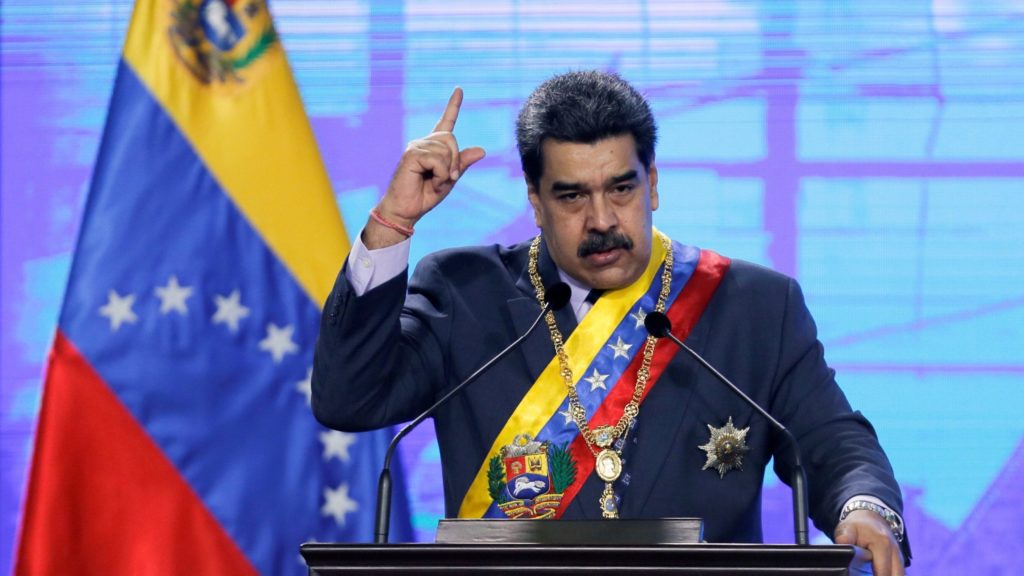After 25 years under “Chavismo,” many Venezuelans hoped that the July 28 elections would lead to a decisive defeat of leader Nicolas Maduro, who has been in power for 11 years.
However, once more the regime showed it’s not willing to go down and announced shortly after midnight that the president was re-elected.
One of the social segments that has to deal with an especially fierce persecution by the government, the Catholic Church reacted with the same incredulity that the Venezuelan masses have been showing in the face of the results released by the electoral authority, which are very different from the polls carried out on the days before voting.
In cities all over the country, Catholics have been part of popular demonstrations promoted by the opposition against Maduro. At least in some of them, lay brothers or priests played an important role. That’s the case of El Tigre, the State capital of Anzoátegui, where Brother Giovanni Luisio Mass, who heads the canonical association Order of the Poor Knights of Christ in Venezuela, lives and works.
“We were part of the avant-garde of the march here in my diocese. When the news of Maduro’s election arrived, we felt a deep indignation,” Mass told Crux.
But then he and his community began to pray and went to the streets to sing the national anthem and protest against what many people saw as a scandalous fraud.
While many electoral surveys had been showing that the major opposition candidate Edmundo Gonzalez was ahead of Nicolas Maduro with a margin of 30 or 35 percent of support, the government-controlled National Electoral Council announced Maduro’s victory with 51 percent of the ballots, while Gonzalez had only 44 percent.
“We peacefully demonstrated, inspiring more and more Catholics to do so. We learned that other priests are willing to go to the streets tomorrow, maybe even our bishop. The important thing is to show to the whole world that we know that Gonzalez was the real winner,” Mass said.
Gonzalez and Maria Corina Machado – the most important opposition leader in the South American country, who was forbidden by the judiciary to be a candidate at the beginning of the year and thus decided to support Gonzalez – declared that they will keep struggling to prove that Maduro lost the elections with the voting records.
The United States and many other nations demanded that Venezuela proceeds with a transparent recount of the ballots and give access to all records to members of the opposition and observers.
Maduro’s government expelled diplomats from seven countries that put the electoral results in doubt – Argentina, Chile, Costa Rica, Dominican Republic, Panama, Peru, and Uruguay.
While most countries and institutions expressed their doubts over the elections almost immediately after the results were released, the Venezuelan Episcopal Conference published a statement on social media only in the afternoon of July 29.
The declaration read that the bishops followed “with attention the development of the latest events” and were “available to pastorally accompany [all] during such moments of uncertainty.”
“Let’s remain firm in hope. Our ideas and fair claims must be manifested with the peaceful attitudes, respectful and full of tolerance, which have been dominant till now,” the statement said.
As a matter of fact, some demonstrations all over Venezuela included acts of vandalism against government buildings or the headquarters of Maduro’s United Socialist Party of Venezuela (PSUV). That was the case in El Tigre, where a video sent to Crux by Mass shows young men throwing rocks against a PSUV building.
The bishops’ statement concludes with a demand for a transparent recount of votes.
“We unite our voices to those of everybody who, inside or outside of Venezuela, require a process of verification of the voting ballots in which all implicated political agents can actively and fully take part,” the declaration read.
While the delay of the episcopate to manifest its opinion regarding Maduro’s supposed victory caused frustration among many Venezuelan Catholics, the firm demand for a recount was received with satisfaction.
“The bishops should have prepared to issue a statement immediately after the results’ announcement. Nobody can take hours or even a whole day to manifest an important opinion in the current world,” Father José Palmar told Crux from his exile in Miami.
“But thank God they asked for a recount and took the side of all Venezuelans who have been suffering with the regime,” he said.
Palmar explained that frauds are always a real possibility in Venezuela, but at that time few people thought that the government “would dare to do so, given the absurd advantage Gonzalez had over Maduro.”
“That’s an electoral crime. It was almost a self-coup and not so much a fraud. Thank God María Corina Machado and Edmundo Gonzalez will not negotiate the truth, like other opposition candidates did in the past,” he said.
Many analysts have been saying that Maduro has a tough situation ahead, with a strong repudiation from the international community and a scenario of growing protests in the domestic arena. Palmar agrees with them.
“It’s been more than two decades of poor public services, no job, no food, no electricity, no medicines … People just cannot stand it anymore. People will keep protesting – and it can become a snowball,” he said.

